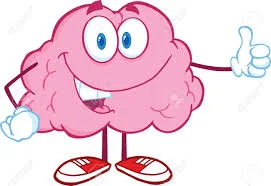Student C often found himself excluded from the class for his behaviour. He would sit quietly outside the room or he would find his way upstairs to speak to a person in leadership. The counsellor would engage with him and over a series of meetings together they worked out what the issue was.
He was big in stature for his age, quiet and withdrawn generally which seemed to reflect the low estimation he had of himself. He seemed to feel angry, not towards others but more towards himself. When feelings ran high he could express himself in ways that were not acceptable but understandable. He might run his pen across his page of work or indeed rip the page out of his exercise book. He would write ‘STUPID’ across the brim of his school hat in texta. His frustration was palpable and his ideas about himself were entrenched and deeply ingrained.
This would not change until he became aware of the beliefs he held, that were irrational, meaning not helpful; barriers to him achieving his goals.
We decided that
we would give irrational and unhelpful ideas a name. We called intrusive and
debilitating thoughts *Brain Bully thoughts. They were attached to Brain Bully self-talk
e.g. ‘I’m dumb and stupid or bad’ for instance. We isolated one to work on and
agreed that the idea of being ‘bad’ would be the place to start.
We talked
about ‘being’ bad and what that meant. It was a global self-rating term, a word
or idea that described his total being or his personhood. We also talked about
the word ‘being’ and what that meant. We agreed that it could mean ‘the way I
am’ i.e. I am my badness.
We then
talked about how ‘I’m bad’ could be a Brain Bully belief. We noted how this thinking
got in the way of his happiness and his ability to set and pursue his goals.
This was the test we applied to the Brain Bully belief ‘I am bad.’ If it stopped
us feeling OK then we could call it for what it was; Brain Bully thinking.
We
continued to explore the idea that he was ‘his badness’ and where this idea may
have originated. He said that he tried hard to do the right thing and when he
didn’t behave as others thought he ‘should’ he felt responsible for how others
felt. For instance his mum would say things like, ‘you make me sad when you do
that.’ Or, ‘you make me mad when you do that.’ This message he had heard all
his life so he believed he was responsible for how his mum felt i.e. he ‘made’
her mad and sad.
We had pinpointed
why he believed he was a ‘bad’ person. He articulated his belief thus; ‘I am a bad
person because I make my mum sad. If it wasn’t for me she would be happy. It’s
all my fault!’ This is a heavy burden for a young person to bear. Where would
we go from here? We’ve established that his irrational, Brain Bully thinking is
connected to how he feels and behaves. His belief he is a ‘bad’ and ‘worthless’
person is connected to or accompanied by behaviours and emotions that are
self-defeating i.e. sad (depressed?), anxious and withdrawing, destroying stuff
etc. We established that his strength of feeling is connected to how he thinks
(believes) things are or should be e.g. I should be ‘good’ but I am ‘bad’ (which
I shouldn’t be!).
We established
a new idea to challenge the Brain Bully belief that we can ‘be’ good or we can ‘be’
bad. We agreed to use (think) the idea that ‘we are OK no matter what. We are
worthwhile no matter what.’ In other words though we might do ‘bad’ or
inappropriate things we are not bad for doing them, we are still worthwhile.
Student C would have to do a lot of work to change what he believed about himself
but this was an important start. We set some homework for ourselves that when
we stuffed up we would try hard to learn from our mistakes but we would refuse
to believe that we were ‘bad’ for making our mistakes.
So student C would train himself to believe that when he makes a mistake and his mum feels angry and she says ‘you make me mad!’ he will remind himself that he is OK no matter what. He will feel sorry for his mistake and try hard to do better but he will not put himself down. He will build the rational (self-helpful) belief of ‘I’m OK no matter what!’ This will help student C to feel sad and disappointed rather that depressed and angry.
We also
gave a name to the rational and useful (self-helpful) thinking we were
practicing to make new beliefs to replace the old Brain Bully beliefs that can
be intrusive and harmful; *Brain Friend thinking.
Student C
made great progress and one day his mum called and asked if she could come to
see me …..
*Brain Bully and *Brain Friend are terms used in the early childhood teaching/counselling resource 'Have a Go Spaghettio!'©






















